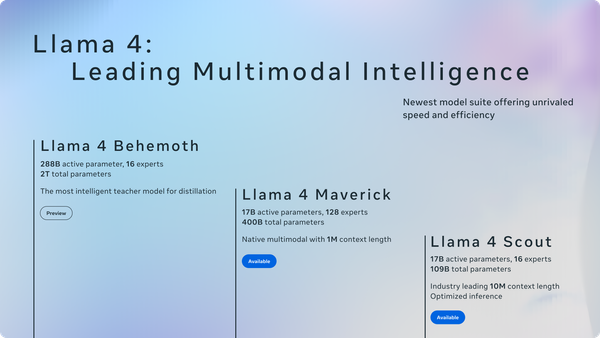Bluesky's big moment
A new Twitter clone is surging in popularity. Could it have legs?

Last week, we talked about how BeReal missed its moment. This week, let’s discuss how Bluesky might avoid the same fate.
Bluesky, of course, is the decentralized social network that surged in popularity over the weekend as the app opened up invitations to more beta testers and quickly sped past its first 50,000 users. Suffice to say it has been a long time coming: I first wrote about the company here in 2019, when Jack Dorsey woke up one day and decided he would try to rebuild Twitter on an open protocol and funded a team to do just that.
Elon Musk’s reign of error over the past six months has led to a flood of talent and money into social networking companies. Among the apps attempting to capitalize on Twitter’s decline are Post, T2, Artifact, Mastodon, and a still-untitled effort from Instagram.
But while most of these are in at least some sense a Twitter clone, Bluesky feels like the genuine article: a near one-for-one replica of Twitter in its early days, with the key difference that it is decentralized. Until recently, the tech world has discussed decentralization primarily in the context of crypto and blockchains. But discontent with centralized servers and walled gardens extends well past the crypto world, and more recently the idea has been picked up by social networks.
As I noted when I first covered Bluesky, the idea of a decentralized Twitter goes back to the app’s earliest days. At first, Twitter was an SMS-based product, and the company encouraged third-party developers to build its first generation of native mobile apps. For a time, Twitter was a design playground. Many novel user interfaces emerged from this period; one early developer, Loren Brichter, invented the now ubiquitous pull-to-refresh gesture on smartphones with his Twitter app, Tweetie. (Which Twitter eventually bought, and turned into the Twitter app for iOS.)
The concept of decentralization causes most folks’ eyes to glaze over, understandably: the concept is almost as unwieldy as the word itself. And yet if you used Twitter in the early days, you benefited from a decentralized ecosystem. Twitter’s ecosystem grew larger, and its service improved faster, because an ecosystem of developers congregated and worked on it together.
Bluesky is not the first app to attempt to recapture that magic. That was Mastodon, which launched all the way back in 2017, and has itself seen a surge in usage since Musk took over Twitter. But for various reasons, Mastodon has never struck me as likely to inherit its predecessor’s mantle as the real-time social network of choice for most people. Its insistence on keeping its team small, not raising venture capital, and slow pace of iteration have limited its ability to seize the moment.
Upon first installing the app, Bluesky doesn’t really look much different than Mastodon, or Twitter, or any other place where you can type text and add photos and broadcast them to the world. One critical difference is that, unlike Mastodon, for the moment there is only one server to join. That makes it substantially easier to create your account, and to find and follow other users, than it has been to do so on Mastodon.
As a result, as soon as the first invites began to trickle out last week, Bluesky essentially drew a flash mob of Twitter users desperate for an easy-to-use alternative. A cascade of prominent users migrated, including Rep. Alexandria Ocasio-Cortez (D-NY) and @dril, king of Weird Twitter. Soon anyone who could score an invite was opening up the timeline (which users christened “the skyline”) and began to “skeet” (the Bluesky equivalent of tweet). (If you live outside the United States and wonder why users seized on that term, please consult Urban Dictionary.)
New social networks often require some novel mechanic to captivate attention and drive daily usage. Bluesky found its version, on accident, with the “hell thread”: a bug that, for a time over the weekend, notified every person who had replied to one popular thread whenever anyone else replied. Eventually, users were able to mute it. But for a few days, the thread went wild with nudes, a text-based game of Tic Tac Toe, and the popular Bluesky character Berduck, “an account that represent[s] a duck writing in baby voice that used artificial intelligence to reply to any user's skeet with a question.”
All of this is supremely silly, of course. But it’s silly in the exact way needed for a social network to attain liftoff. The absurdity of the hell thread encouraged a kind of general, free-floating absurdity in the app over the weekend, as users cast off the political warfare and engagement hacks that have defined Twitter in recent months in favor of shitposts, pet photos, dad jokes, and nudes.
All of this was legible to any user of the platform through Bluesky’s convenient "What’s Hot” tab, which lets you surf a chaotic feed of popular posts to see what’s trending on the skyline. Until seconds before I wrote this sentence, much of what was “hot” involved nude photos, which for all the flaws in content moderation that represents was a great growth tactic while it lasted. (For the poster and for Bluesky.)
By now this sort of feeling is familiar from pop-up social networks of the past. When they are newborns, early adopters revel in the sense of freedom that comes with a smaller audience, along with the chance to create new norms. As more users flood in, and the novelty fades, platforms typically fade away with them. That remains the most likely fate for Bluesky, too — but there are steps the app could take to stave off a decline.
One, it should keep its decentralized nature in the background for average users. Most users will be perfectly happy to use the company’s default server for a long time to come. When the app does open up to other servers using its custom protocol, the company should strive to ensure that it remains easy to find friends who might be joining from elsewhere. (Mastodon today finally took that hint, announcing it would begin to add new users to a default server without requiring them to choose.)
Two, Bluesky should lean into decentralization as a tool to grow the user base. As soon as the company feels confident it can safely moderate an order of magnitude more users, it should let developers loose on building mobile apps, desktop apps, and whatever other useful bots and tools will grow the ecosystem. There’s a chance for Bluesky to become an ongoing design playground in a way that Twitter only briefly ever was — but the company needs to seize that moment before it passes.
Three, Bluesky should continue to cultivate the sense that it is weirder and funnier than Twitter. That means leaning into some of the eye-rolling terms that users are insisting on, including skeets. The history of social network is full of platforms that were built on interactions that seemed beneath the dignity of a human adult — pokes, check-ins, tweets! — and Bluesky would do well to add more of them.
Finally, Bluesky should step in to fix the parts of the Twitter ecosystem that Musk is breaking. New York’s Metropolitan Transit Authority just stopped publishing automated alerts to Twitter because the company’s API for doing so now runs $42,000 a month or more; Bluesky should offer an API alert service for free or a nominal cost. That price hike also led WordPress to remove a feature letting users post to Twitter automatically; Bluesky should work to quickly offer social sharing buttons to any website that might want them.
And if any of that feels like too much work for Bluesky’s still-small team, opening up its API to let third-parties build such features would help the company prove the material benefits of being decentralized without creating headaches for the user base.
None of this will be easy to do. Social network users are fickle, and the novelty of a new place to post can wear off in a hurry. It’s still not entirely clear how content moderation will work effectively on a decentralized network. And Bluesky still needs to develop a business model that will support its broader ambitions. (Bluesky CEO Jay Graber very politely declined an interview today, telling me she’s focused on hiring at the moment.)
At the same time, an opportunity like this hasn’t come along since Twitter’s earliest days. The demand for something like Bluesky is clear, and the energy around it is real.
If the company can give its users what they want, the sky will truly be the limit.
Elsewhere in Jack Dorsey: Dorsey said it was a mistake to let Elon Musk purchase Twitter, and that “it all went south,” in a series of replies to users on Bluesky. You don’t say, Jack.
Governing
- The EU’s new draft AI bill released last week was the result of last-minute scrambling by lawmakers to account for the sudden explosion of generative AI chatbots now remaking the industry. (Martin Coulter and Supantha Mukherjee / Reuters)
- One requirement of the EU’s AI Act is that makers of generative AI tools disclose any copyrighted material used to develop their underlying systems. Good! (Martin Coulter, Foo Yun Chee, and Supantha Mukherjee / Reuters)
- OpenAI has resumed operations in Italy after meeting a long list of demands from the country’s data privacy regulator. (Kelvin Chan / Associated Press)
- TikTok plans to label videos featuring deepfakes or using other generative AI techniques to produce audio or video in an effort to combat misinformation and copyright concerns. Good! (Kaya Yurieff / The Information)
- A profile of Sarah Cardell, the head of the U.K.’s Competition and Markets Authority, revealed how the lawyer has become a central force in the agency’s tougher stance toward M&A. (Kate Beioley in London and Javier Espinoza / Financial Times)
- A patchwork of U.S. state laws designed to protect children online is imposing age verification and content restrictions on TikTok, Pornhub, and other platforms. Critics say the bills are threatening free speech rights, including those of adults. (Natasha Singer / The New York Times)
- Leaked documents detailing ByteDance’s “sensitive words” tool show how topics like the Chinese government are monitored and in some cases suppressed on TikTok and Douyin. (Alexandra S. Levine / Forbes)
- The Wikimedia Foundation said it won’t request age verification from Wikipedia visitors to comply with the U.K.’s Online Safety Bill, because it would violate its “commitment to collect minimal data” on users. (Chris Vallance and Tom Gerken / BBC)
- Brazil lifted its suspension on Telegram over non-compliance with an order to share info on neo-Nazi and other extremist accounts. But the appeals court judge kept in place the one million reais (roughly $200,000) daily fine. (Reuters)
- A new Canadian law, the Online Streaming Act, will require social video platforms like TikTok and YouTube promote local culture by recommending Canadian content. A huge moment for Letterkenny. (Mickey Djuric / The Toronto Star)
- JPMorgan Chase will acquire most of First Republic after the FDIC seized the bank, wiping out shareholders but protecting depositors in the U.S.’s second-largest bank failure. (Financial Times)
- Truth Social whistleblower Will Wilkerson, who accused Trump’s technology company of violating securities laws, is keeping a low profile working for Starbucks after providing the SEC with evidence. (Drew Harwell / The Washington Post)
- Jack Dorsey’s not-for-profit Bitcoin Legal Defense Fund is helping defend a group of open source developers from Craig Wright, an Australian computer scientist who claims he unjustly lost access to $5 billion in Bitcoin. Wright has also claimed he is in fact Bitcoin creator Satoshi Nakamoto. (Paul Sawers / TechCrunch)
- The Kingdom of Bhutan has for several years now been using its hydroelectric capabilities to operate a state-run Bitcoin mining operation. (Iain Martin and Sarah Emerson / Forbes)
Industry
- Geoffrey Hinton, sometimes referred to as the “Godfather of AI,” quit his job at Google and warned of the dangers presented by modern generative AI systems. In fairness, most of what he says here is also said routinely at most people currently working for AI companies. (Cade Metz / The New York Times)
- DeepMind co-founder Demis Hassabis lost a years-long battle to keep his AI company independent when Google announced it would merge the unit with its own Google Brain research lab. Hassabis will lead the new division, but will no longer be shielded from requirements that it generate profits. (Madhumita Murgia / Financial Times)
- A new report details Elon Musk’s complicated relationship with AI development, as he warns against the dangers of the technology while simultaneously competing against OpenAI with a new venture. (Cade Metz, Ryan Mac, and Kate Conger / The New York Times)
- Journalist Joanna Stern created deepfaked video and audio versions of herself with available AI tools, and used them to trick Chase’s credit card biometric system. Joanna you absolute rascal. (Joanna Stern / WSJ)
- Doctors in California and Wisconsin are part of a pilot program that’s using ChatGPT to read patient messages and drafts responses to save time. (Nidhi Subbaraman / WSJ)
- OpenAI sent a takedown request to the creator of GitHub project GPT4Free, which provides free access to GPT-4 by funneling queries through sites like Quora that pay for API access. (Avram Piltch / Tom’s Hardware)
- The Writers Guild of America included a line in its upcoming contract negotiations with Hollywood studios about replacing human writers with generative AI, amid growing automation concerns among screenwriters. (Noam Scheiber and John Koblin / The New York Times)
- AI programs like ChatGPT have led to the creation of nearly 50 high-volume content farms generating articles with false or misleading information. (Davey Alba / The New York Times)
- IRL CEO Abraham Shafi stepped down from the messaging app following allegations that it used bots to inflate its engagement metrics. The SEC launched an investigation in December. (Mark Matousek and Amir Efrati / The Information)
- A recent wave of positive tech company earnings announcements have signaled a potential end to the post-pandemic slowdown of 2022. (Meghan Bobrowsky / WSJ)
- Mark Zuckerberg faces lower morale at Meta lately following his decision to slash tens of thousands of jobs, and amid a general lack of employee enthusiasm about the company’s metaverse plans. (Naomi Nix / The Washington Post)
- Reddit is testing Discord-like channels for real-time chat with 25 volunteer subreddits that each have less than 100,000 members. (Ivan Mehta / TechCrunch)
Those good tweets
For more good tweets every day, follow Casey’s Instagram stories.

(Link)

(Link)

(Link)
Talk to us
Send us tips, comments, questions, and those good skeets: casey@platformer.news and zoe@platformer.news.





